Saturday, March 23, 2024
Tri-C ® Adjunct Faculty Conference
The 2024 Cuyahoga Community College Adjunct Faculty Conference committee welcomes faculty and staff from colleges and universities throughout Ohio and beyond for today’s virtual conference. We are pleased to support professional development for college faculty as we “Embrace Change.”
This conference explores the teaching and learning landscape to find transformative ways to support students, faculty, staff and administration as they navigate continuous change. Thank you to our presenters who are allowing us to offer 12 concurrent sessions to share with you today. We appreciate your time and expertise.
We would also like to thank adjunct faculty for the vital role they play in student success across all institutions of higher education. We hope today provides you with the opportunity for professional and personal growth.
Sincerely,
2024 Adjunct Faculty Conference Committee
"Adaptability to change is itself a hallmark of successful education.”
– Peter Hilton
Schedule of Events
9 - 9:20 a.m.
Welcome and Opening Remarks
Dennis Joyce
Adjunct Ser vices Manager, Moderator
Michael Baston President, Cuyahoga Community College
Karen Miller
Provost and Executive Vice President, Access, Learning & Success, Cuyahoga Community College
Todd Kitchen
Campus President, Eastern Campus
Denise McCor y
Campus President, Metropolitan Campus
Lisa Williams
Campus President, Western Campus
Scott Latiolais
Campus President, Westshore Campus
Shana Marbur y
Executive Vice President, Workforce, Community and Economic Development Division (WCED)
9:20 - 10:05 a.m.
10:15 - 11 a.m.
11:15
12:15
Keynote Address
Concurrent Session A
Noon
a.m. -
Concurrent Session B
C
- 1 p.m. Concurrent Session
2024 Adjunct Faculty Conference Committee
Robin Williams, Co-Chair
Dennis Joyce, Co-Chair
Peter Anderson
Angela Baker
Karen Cross-Hatten
David Crowell
Kara DePaul
Mike Donato
Sonja Elekhtaby
Christine Hickey
Sharon Logue
Diane Nickoson
Amanda Nolan
Georgia Rothstein
Brad Scott
Jacques Smith
Shamuire Spivey
Leanne Van Beers-Werneke
Olivia Villasenor
Sara Williams

Special Thanks
Television and Video Production
Information Technology Services (ITS)
Adjunct Services
Conference Host Westshore Campus
Sessions at a Glance
Click the hyperlinked titles for session descriptions and links to join.
Welcome and Opening Remarks
9 - 9:20 a.m.
Dennis Joyce
Michael Baston
Karen Miller
Todd Kitchen
Denise McCor y
Lisa Williams
Scott Latiolais
Shana Marbur y
Keynote Address
9:20 - 10:05 a.m. “Hold on Loosely, But Don’t Let Go”
Patricia Lesko, Publisher of the Part-Time Press and AdjunctNation.com
Concurrent Session A
10:15 - 11:00 a.m.
A1 Assessing Student Lear ning in an Era of Transformation at Tri-C
A2 Project Insight: Unveiling Implicit Biases
A3 Resetting Expectations to Refocused Growth & Success
A4 Using PowerPoint Jeopardy in (and out of) the Classroom
Concurrent Session B
11:15 a.m. - Noon
B1 Increase Persistence, Success & Retention: Switching from 16-week to 8-week Courses
B2 The Ar t of Networking: Collaboration Between Higher Ed and Industry
B3 Introduction to D2L’s Brightspace
B4 Using a Rotation Model to Promote Student Engagement
Concurrent Session C
12:15 - 1:00 p.m.
C1 Evolution of College Math from Algebra Highway to Math Pathways
C2 Open for Business: Brain-based, Classroom Climate Change for Learning
C3 Empowering All Learners: Integrative Assistive Technology in Modern Education
C4 Enhancing Student Engagement through Gamification and Interactive Technology
Presentation Pathways
Concurrent sessions are organized by Presentation Pathways, as described below.
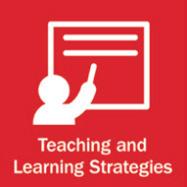
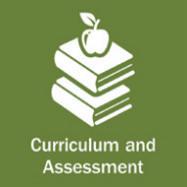
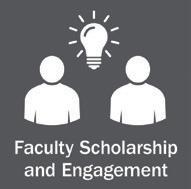
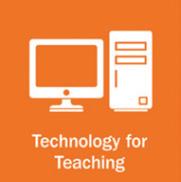
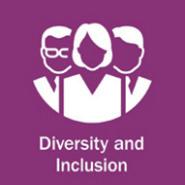
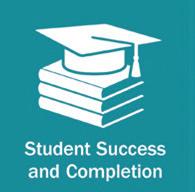

Teaching and Learning Strategies
Engage and explore effective practices such as active learning, innovative teaching techniques and student engagement.
Curriculum and Assessment
Discuss opportunities to incorporate critical thinking in course design, learning outcomes and assessment strategies.
Faculty Scholarship and Engagement
Engage in reflective practices with peers to build and strengthen the teaching community, including the integration of Scholarship of Teaching and Learning (SoTL), personal growth and student development.
Technology for Teaching
Explore various technologies to support student learning.
Diversity and Inclusion
Appreciate and recognize the value in diverse perspectives with strategies to support learners both inside and outside the classroom.
Student Success
Identify and promote services, resources and success initiatives available to students.
Tri-C Specific
Sessions will discuss Tri-C-specific programs and/or policies.
Keynote Address
9:20-10:05 a.m.
Click the hyperlinked title to join the session.
Adjunct Faculty Conference Keynote Address
Hold On Loosely, but Don’t Let Go
Patricia Lesko, publisher of the Part-Time Press and AdjunctNation.com
In 2020, the higher education sector took in $124.8 billion in tuition, fees and funds from states and the federal government. However, over the last 40 years, more and more students have failed to complete their degrees. Despite the exponential growth in spending on higher education, the statistics paint a concerning picture: 10.5% of adults hold an associate degree as their highest educational attainment, while 23.5% have a bachelor’s degree, and 14.4% hold advanced degrees, such as master’s, professional or doctoral degrees, according to the U.S. Census Bureau. The pressing question: How do we pivot this paradigm and redesign educational environments where students not only aspire to success but also realize it?

About the Speaker
Patricia Lesko is the publisher of the Part-Time Press and AdjunctNation. com. Renowned as an author, her professional development handbooks for teaching faculty have garnered global acclaim, with sales surpassing 400,000 copies. These books are integral to professional development initiatives across more than half of U.S. colleges and universities.
Since 2013, Lesko has ventured into investigative journalism, earning accolades from esteemed organizations like the Society of Professional Journalists. In 2022, she was nominated for eight national reporting awards, including a Goldsmith Prize, Dart Award and Pulitzer Prize for local reporting.
Lesko earned her undergraduate and graduate degrees from the University of Michigan at Ann Arbor.
CONCURRENT SESSION A
10:15 - 11:00 a.m.
Click the hyperlinked title to join the session.
A1 | Assessing Student Learning in an Era of Transformation at Tri-C
Change is afoot at Cuyahoga Community College (Tri-C®) as we move to a new schools model, implement a new learning management system and continue to make other improvements to enhance the student experience. However, one thing remains the same: the need for outcome assessments. Colleges must assess student learning at the course, program and institutional levels, and the process begins with the faculty. Faculty develop the courses, assignments and assessments that measure student learning. This session will examine how transformations at the College may change faculty roles in assessing student achievement and learning outcomes.
Pat Stansberry, Assistant Professor, English, Cuyahoga Community College
Anne Distler, Professor, Chemistry, Cuyahoga Community College

Amanda Nolan, Program Manager, Office of Learning Outcomes Assessment, Cuyahoga Community College
Holly Craider, Associate Vice President, Curriculum, Assessment and Accreditation Activities, Cuyahoga Community College
At the end of this session, attendees will be able to:
1. Plan for outcomes assessment with the new LMS
2. Submit data for course-level assessments in their disciplines
3. Design and update assignments that allow students to demonstrate learning in Tri-C’s course, program and institutional outcomes
A2 | Project Insight: Unveiling Implicit Biases
Project Implicit, centered around the theme of enhancing student success, is a sophisticated and innovative tool developed by Harvard University. It delves into the individual’s subconscious thoughts and emotions. The approach is deeply rooted in psychology and utilizes a computer-based measure known as the Implicit Association Test, proven to gauge implicit attitudes. This valuable resource enables educators to ethically support students — particularly those from international backgrounds — ensuring their academic success.
Ritu Sharma, Professor, English, Purdue Global University
Ramona Anand, Assistant Professor, Engineering, Lorain County Community College
At the end of this session, attendees will be able to:
1. Ethically support students, with a particular focus on those from international backgrounds
2. Identify and effectively manage their biases and prejudices


3. Foster an environment where key stakeholders in education can impartially embrace and serve each student, ensuring their academic success
A3 | Resetting Expectations to Refocused Growth and Success
This session identifies a few ways to change the classroom dynamics to include all students. In today’s technological world, lecturing is one of many teaching methods. Designing an interactive classroom that refocuses the learning from one-way to two-way is crucial. It requires less out-of-seat preparation time and more in-classroom discussions that foster a learning culture in a changing and dynamic world.
Jackie Arendt, Adjunct Faculty, Sociology, Cuyahoga Community College
At the end of this session, attendees will be able to:


1. Incorporate simple teaching strategies that fit the students in the course for continuous learning
2. Pivot a lesson plan with quick and easy technology apps or online resources that keep students engaged
3. Utilize a growth mindset to create a toolkit that unlocks opportunities to connect with all students
A4 | Using PowerPoint Jeopardy in (and out of) the Classroom
Most instructors use a traditional method to review materials for an exam — on the board or going through a conventional set of PowerPoint slides. In this session, instructors will learn how PowerPoint Jeopardy can be used as a review tool, embracing educational change and having fun in the process.
Gerry Nemeth, Instructional Assistant, Student Support Services, Cuyahoga Community College
At the end of this session, attendees will be able to:


1. See the value of using PowerPoint Jeopardy as a legitimate way of reviewing for an exam
2. Improve their PowerPoint skills
3. See how a PowerPoint Jeopardy game gets the students engaged and excited
CONCURRENT SESSION B
11:15 a.m. - Noon
Click the hyperlinked title to join the session.
B1 | Increase Persistence, Success and Retention: Switching From 16-week to 8-week Courses
New research shows that 8-week courses lead to increased persistence, success and retention. This presentation will focus on how you can redesign your class from focusing on 16-week courses to 8-week courses by eliminating assignments and increasing the length of assessments. We will also review course mapping to ensure that learning objectives are still being met while adhering to a new structure and student workload requirements.
Amy Stahl, Assistant Professor, Business, Marion Technical College
Mike White, Associate Dean of Technical Programs, Marion Technical College
At the end of this session, attendees will be able to:
1. Create a revised course map, linking objectives to assessments
2. Explain the benefits of 8-week courses
3. Identify assignments that can be adjusted for 8-week courses
B2 | The Art of Networking: Collaboration Between Higher Ed and Industry



Learn how an impressive event brought together students from various targeted groups within the University of Cincinnati community. By including participants from multiple programs, the event fostered a diverse and inclusive environment where students could learn from each other’s experiences and perspectives. Topics covered a wide range of essential skills and knowledge areas for transitioning into the professional world. From understanding the employment process to emotional intelligence to assessing one’s professional value, each topic addressed key aspects of career development and success. This roundtable format provided students with valuable opportunities for meaningful discussions and interactions. By engaging with professionals who have real-world experience in these areas, students gained practical insights and advice to help them navigate their own career paths more effectively.
Michelle Leon, Ph.D., Assistant Professor, Speech, Language and Hearing Sciences, Mount St. Joseph University
Ty Fields, M.Ed., Assistant Director, McNair Postbaccalaureate Achievement Program, University of Cincinnati

Leslie Kokotek, Ph.D., Research Associate, CAHS Communication Sciences and Disorders, University of Cincinnati
Arthur Walton, Success Coach, Cincinnati Pride Support Services, Academic Enrichment and Outreach, Student Affairs, University of Cincinnati
Cheri Westmoreland, Ed.D., Director, Academic Enrichment and Outreach, University of Cincinnati
At the end of this session, attendees will be able to:
1. Understand how to leverage industry relationships to achieve career education learning outcomes
2. Apply the fundamental principles of survey design in developing an instrument to assess college students’ sense of belonging — considering factors like race, ethnicity, socio-economic status, disability and other relevant considerations
3. Apply best practices for engaging industry and community partners, staff and students in achieving graduation
B3 | Introduction to D2L’s Brightspace
Tri-C is evolving as we prepare for the transition to a new learning management system, D2L Brightspace, in the 2024-2025 academic year. Join us as we generate excitement and alleviate some fears and confusion by answering common questions about the implementation of Brightspace:
• What are some new and exciting features that I will experience in Brightspace?
• How will I be trained to use Brightspace?
• How can I have my Blackboard content moved to Brightspace?
• When can I teach in Brightspace?
Kari Vara, Senior Instructional Designer, Cuyahoga Community College
Cindy Conaway Mavroidis, Assistant Professor, Biology, Cuyahoga Community College
At the end of this session, attendees will be able to:
1. Identify exciting features offered in Brightspace
2. Access D2L Brightspace Basics for Faculty in COMPASS
3. Demonstrate understanding of the options to move Blackboard content to Brightspace
B4 | Using a Rotation Model to Promote Student Engagement

Many college classes still operate exclusively using the lecture model of instruction. The rotation model provides a way to vary the delivery of instruction and provide students with a collaborative experience that chunks concepts to help focus their learning. Increased opportunities for small group instruction are a benefit of the rotation model of instruction.
Tom Hogan, Adjunct Faculty, Chemistry, Cuyahoga Community College
Amy Roediger, Adjunct Faculty, Chemistry, Lake Erie College
At the end of this session, attendees will be able to:
1. Describe the benefits of a rotation model
2. Identify content that would be appropriate for a rotation model
3. Create centers that they can use to implement a rotation model in their disciplines

CONCURRENT SESSION C
12:15 - 1 p.m.
Click the hyperlinked title to join the session.
C1 | Evolution of College Math From Algebra Highway to Math Pathways
Over the last 20 years, the landscape of mathematics in higher education has evolved from an algebrafocused core to a set of defined pathways. Additionally, the mathematics community has advocated for increased critical thinking, inquiry and reasoning across all math courses. This presentation will cover a brief history of math offerings at Tri-C, the motivations for change and what the future holds for college math.
Aaron Altose, Associate Professor, Mathematics, Cuyahoga Community College
Colin Sheppard, Assistant Professor, Mathematics, Cuyahoga Community College
At the end of this session, attendees will be able to:

1. Explain how college math has transformed from a sequence of algebra courses to a framework of pathways
2. Explain what “reasoning” means in terms of college math and give examples of reasoning in a quantitative reasoning course, statistics course and algebra course
3. Describe how college math has evolved to increase the learning, success and lifelong benefit for our students
C2 | Open for Business: Brain-Based, Classroom Climate Change for Learning
Build a brain-based mindset to encourage safety, belonging and resilience to engage, teach and support students from the classroom to graduation. A brain-based mindset implements trauma-informed principles by understanding the prevalence of trauma and how trauma history impacts brain function, cognitive processes, emotional regulation, attention span, organization and overall ability to be successful inside and outside the classroom.


When our students appear disconnected, faculty often feel helpless to connect. Build a brain-based mindset to create a new classroom climate and discover how increased connection increases student success.
Sue Dieterich, Adjunct Faculty, Counseling, Cuyahoga Community College
Renee Kolecki, Adjunct Faculty, Counseling, Cuyahoga Community College
At the end of this session, attendees will be able to:
1. Identify the basic concepts of trauma and the prevalence of trauma
2. Acknowledge how a universal mindset can support all students — not just those impacted by trauma
3. Create a new classroom climate incorporating safety and trust — two principles of trauma-informed care that use brain-based strategies to improve student attitudes, engagement and resilience
C3 | Empowering All Learners: Integrative Assistive Technology in Modern Education

Assistive technology for teaching college students with disabilities is crucial to ensuring that all students have equal access to education and can reach their full potential. This presentation explores the transformative role of assistive technology in education, advocating for its integration beyond traditional accommodation needs. Join the presenters as they delve into innovative technology tools that enhance learning for all students, fostering a more inclusive and dynamic classroom environment. By embracing these technologies, educators can address diverse learning styles, improve engagement and cultivate a more equitable learning landscape. This presentation includes demonstrations of common assistive technology tools and resources that can benefit college students.
Casey Brown, Adjunct Faculty, English, Cuyahoga Community College
Crystal Hester, Digital Instructional Accessibility Specialist, Cuyahoga Community College
At the end of this session, attendees will be able to:

1. Identify key types of assistive technologies and their applications while understanding their role in fostering inclusive education
2. Analyze and assess the impact and effectiveness of different assistive technologies on student engagement and learning outcomes for all students
3. Learn how to develop strategies to integrate assistive technologies into their teaching curricula and methodologies
C4 | Enhancing Student Engagement Through Gamification and Interactive Technology
Technology integration into instructional design has become prevalent in education. With student engagement as a core goal, creating dynamic content using modern teaching tools becomes daunting for faculty. Adopting innovations like AI and diversity and inclusion efforts doesn’t have to be overwhelming. Making incremental enhancements in content delivery — such as experimenting with one new tool at a time — can gradually help faculty transition to a growth mindset. In this session, participants will be introduced to several user-friendly teaching tools that use gamification, such as Quizizz, Kahoot and Quizlet, and interactive learning opportunities, such as AI use in PowerPoint, as both teaching and assessment strategies.
Nahreen Rahman, Adjunct Faculty, Business and Economics, University of Cincinnati, Blue Ash
At the end of this session, attendees will be able to:


1. Compare and contrast different technology tools used in education to enhance student engagement
2. Identify one technology tool that attendees may implement in their own course design
3. Assess the value of a gamification or interactive tool by playing both the role of a student and a teacher
Information and Upcoming Events
Tri-C Adjunct Services Virtual Office Hours and Contact Information
• Eastern Campus: Fridays, noon-1 p.m. | Sonja Elekhtaby, Manager
• Metropolitan Campus: Fridays, 10:30-11:30 a.m. | Karen Cross-Hatten, Manager
• Western Campus: Wednesdays, noon-1 p.m. | Angela Baker, Manager
• Westshore Campus: Mondays, noon-1 p.m. | Dennis Joyce, Manager
Adjunct Faculty Appreciation: Making a Difference Every Day
This Collegewide virtual event recognizing the dedication and teaching excellence of Tri-C’s adjunct faculty for the 2023-2024 academic year will launch in April. In addition, be sure to stop by your Campus Adjunct Services office April 22-23 for special treats and giveaways. Watch for more details coming soon!
Faculty Development Calendar
Tri-C is committed to helping faculty grow and develop at every stage of their careers. The Office of Academic Professional Development (also known as Faculty Development) collaborates with several Collegewide and campus-based departments to support ongoing training and development needs for all full-time and adjunct faculty. Find upcoming faculty development opportunities here!
Adjunct Faculty Stipend Program
The Adjunct Faculty Stipend Program provides an opportunity for Tri-C adjunct faculty to enhance their success in the classroom and promote engagement in the Tri-C community while providing a financial incentive of $500. These stipend-eligible categories are designed to focus on interdisciplinary, pedagogy and technology competencies. Click here to find out more about the program.
Reminder: There is one more deadline for stipend submissions this year: April 19.
AdjunctNation.com
Adjunct Services has subscribed to this professional development resource. Contact your respective Adjunct Services office for details.
SAVE THE DATE! Ohio Association of Two-Year Colleges (OATYC) Conference
The 2024 Ohio Association of Two-Year Colleges (OATYC) Annual Conference will be held on Friday, Oct. 11, at Rhodes State College. Watch for more details coming soon!
Excellence in Teaching Award in Honor of Ralph M. Besse
The annual Excellence in Teaching Award in Honor of Ralph M. Besse recognizes Tri-C faculty collegewide for their commitment to academic integrity, stimulation of intellectual development and investment in students within and beyond the classroom.
Congratulations to the 2023 award winners!
2023 Adjunct Faculty Winners:
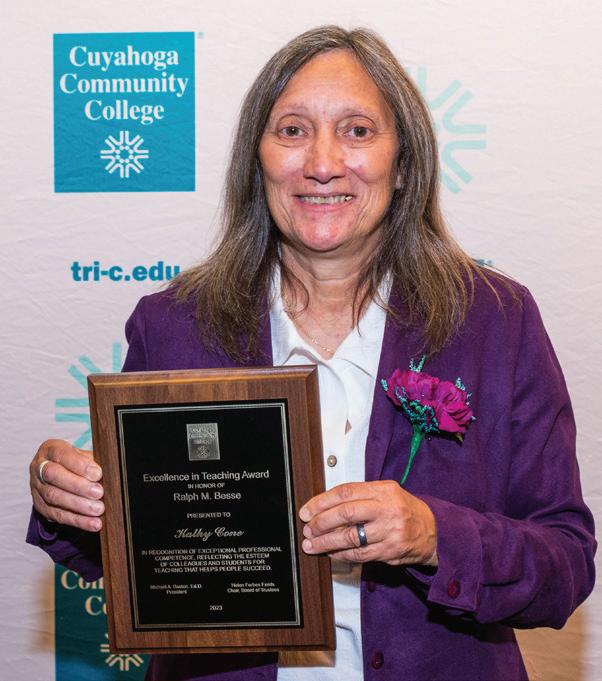
Kathy Cone Adjunct Faculty Mechanical Engineering COE Metropolitan Campus
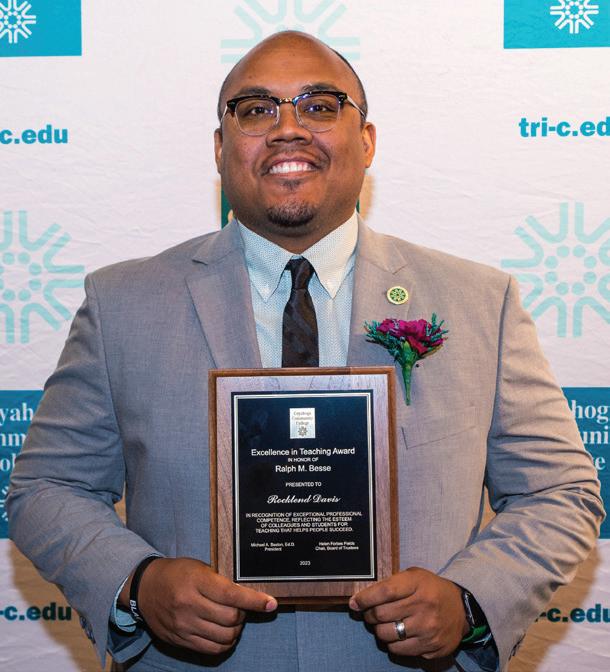
Rocklend Davis Assistant Professor Physical Therapy Assisting Metropolitan Campus
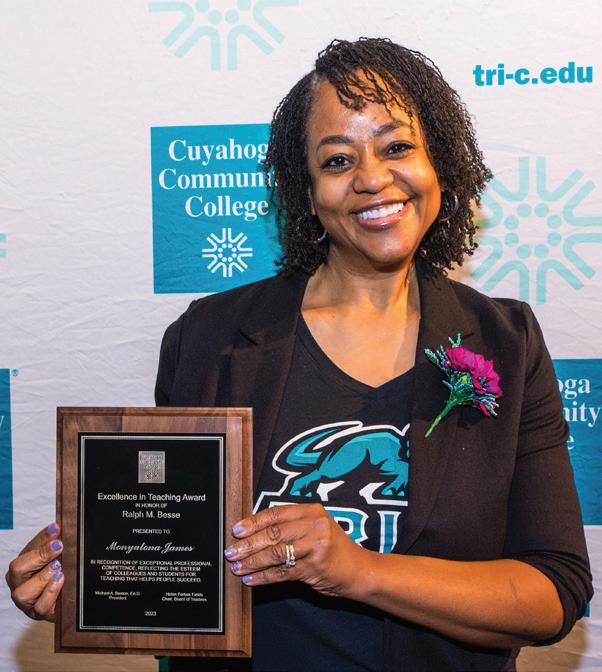
Monyulona James Adjunct Faculty Emergency Medical Technology Metropolitan Campus












